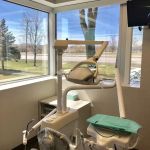Risks and Complications of Oral Surgery: What You Need to Know Before the Procedure
- Understanding Oral Surgery
- Common Risks of Oral Surgery
- Serious Complications to Watch Out For
- How to Minimize Risks in Oral Surgery
- Recovery and Aftercare for Oral Surgery
- Conclusion and How to Prepare for Oral Surgery
1. Understanding Oral Surgery
Oral surgery involves various procedures performed to treat dental issues that cannot be addressed with routine dental care. This includes procedures like wisdom tooth extraction, dental implants, jaw surgery, and corrective surgeries for gum diseases or oral cancers. While these surgeries are generally safe, understanding the risks and potential complications can help you make informed decisions and prepare adequately for the procedure.
2. Common Risks of Oral Surgery
Like any surgical procedure, oral surgery carries a set of risks. Some common risks associated with oral surgery include:
- Infection: One of the most common risks of oral surgery is infection. Bacteria can enter the surgical site, causing swelling, pain, or pus. Proper aftercare, including following prescribed antibiotic regimens, can minimize this risk.
- Bleeding: Although some bleeding is expected, excessive bleeding may occur, particularly after tooth extractions or jaw surgeries. If bleeding persists, it may require additional medical attention.
- Swelling and Bruising: Swelling and bruising around the surgery site are common, especially after tooth extractions or dental implants. While these typically resolve within a few days to a week, they can be uncomfortable during recovery.
Being aware of these common risks allows patients to take the necessary precautions before undergoing oral surgery.
3. Serious Complications to Watch Out For
In rare cases, oral surgery can lead to more serious complications that may require immediate medical intervention. These include:
- Nerve Damage: During oral surgery, especially procedures like wisdom tooth extraction or jaw surgery, there is a small risk of damaging nerves, leading to numbness, tingling, or loss of sensation in the face or mouth.
- Dry Socket: After tooth extractions, a complication known as dry socket may occur if the blood clot dislodges from the extraction site. This can lead to intense pain and slow down the healing process.
- Sinus Issues: Some dental procedures, particularly those involving the upper jaw, can affect the sinus cavities. This may lead to sinus infections or other issues in the nasal passages.
While these complications are rare, being informed helps you to know when to seek immediate medical help during your recovery.
4. How to Minimize Risks in Oral Surgery
While it’s impossible to completely eliminate all risks, there are steps you can take to minimize the chances of complications during oral surgery:
- Choose a Skilled Surgeon: The skill and experience of your oral surgeon play a significant role in reducing risks. Be sure to research your surgeon’s credentials and ask about their experience with the specific procedure you need.
- Follow Pre-Surgery Instructions: Your surgeon will provide instructions regarding what to eat, medications to avoid, and how to prepare for surgery. Following these guidelines closely will help ensure a smoother surgery and recovery process.
- Post-Surgery Care: Following your surgeon’s post-operative care instructions is crucial to minimizing the risk of infection and complications. This may include taking prescribed medications, avoiding certain foods, and keeping the surgery area clean.
By carefully following your dentist's or surgeon’s advice and taking appropriate precautions, you can minimize your risk of complications and enjoy a smoother recovery process.
5. Recovery and Aftercare for Oral Surgery
The recovery period after oral surgery varies depending on the type of procedure, but there are some general guidelines to ensure a healthy and quick recovery:
- Rest: Rest is critical during the first 48-72 hours after surgery. Avoid strenuous activities and give your body time to heal.
- Diet: Stick to soft, cool foods like mashed potatoes, yogurt, and soups. Avoid hot, spicy, or crunchy foods that could irritate the surgical area.
- Pain Management: Pain and swelling are common during recovery. Over-the-counter pain relievers or prescription medication can help manage discomfort.
- Follow-Up Appointments: Be sure to attend follow-up appointments with your surgeon to ensure the healing process is progressing as expected and to address any concerns that arise.
By adhering to these aftercare tips, you can minimize complications and promote a smooth recovery.
6. Conclusion and How to Prepare for Oral Surgery
Oral surgery is a significant procedure that comes with both risks and benefits. While complications can occur, they are rare and manageable with proper care and guidance from an experienced oral surgeon. Understanding the risks and preparing adequately for surgery can help you feel confident in your decision to undergo the procedure. If you're considering oral surgery, it’s essential to discuss all potential risks with your healthcare provider and ensure you follow pre- and post-operative instructions carefully.
If you’re looking for trusted oral care products to support your recovery after surgery, visit Dentistry Toothtruth for high-quality oral health solutions. Learn more about how to care for your oral health and prevent complications by exploring our range of products.







 Middleton Family Dental4.0 (798 review)
Middleton Family Dental4.0 (798 review) Northpark Dental4.0 (99 review)
Northpark Dental4.0 (99 review) Dentists of South Pasadena4.0 (124 review)
Dentists of South Pasadena4.0 (124 review) Drs. Trava, Oh, Petix, Shon & Yang4.0 (21 review)
Drs. Trava, Oh, Petix, Shon & Yang4.0 (21 review) Eastern Dental3.0 (336 review)
Eastern Dental3.0 (336 review) Pediatric Dentistry Marlboro: Young Yi, DMD0.0 (0 review)
Pediatric Dentistry Marlboro: Young Yi, DMD0.0 (0 review) The Importance of Oral Health Education During Pregnancy for a Healthy Pregnancy
The Importance of Oral Health Education During Pregnancy for a Healthy Pregnancy Best Tips for Brushing Your Teeth Properly for Healthy Gums: Essential Techniques for Oral Health
Best Tips for Brushing Your Teeth Properly for Healthy Gums: Essential Techniques for Oral Health Why Skipping Dental Checkups Can Lead to Bigger Oral Health Problems
Why Skipping Dental Checkups Can Lead to Bigger Oral Health Problems Advantages of Porcelain Dental Restorations
Advantages of Porcelain Dental Restorations How Can Diabetes Cause Tooth and Gum Problems? Preventing and Managing Oral Health Issues
How Can Diabetes Cause Tooth and Gum Problems? Preventing and Managing Oral Health Issues Healthy Habits for Promoting Good Oral Health and Hygiene: Tips for a Healthy Smile
Healthy Habits for Promoting Good Oral Health and Hygiene: Tips for a Healthy Smile